Shoppers Are Abandoning Target, Data Shows—Here’s Why
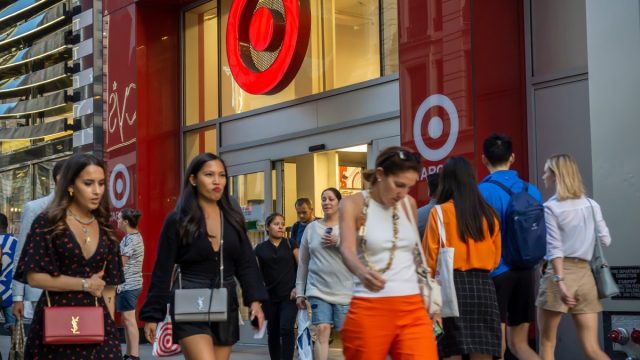
Target has long been revered for its ability to get shoppers to spend their money—with many people claiming that they always end up buying more than they intended to at the retailer’s stores. But now, it seems like people might be shopping elsewhere instead, with Target reporting a decline in sales for the first time in years. Read on to find out why shoppers may be abandoning Target.
RELATED: Walmart and Target Have a Secret Hiding Spot for Clearance Items.
Target’s sales have declined.
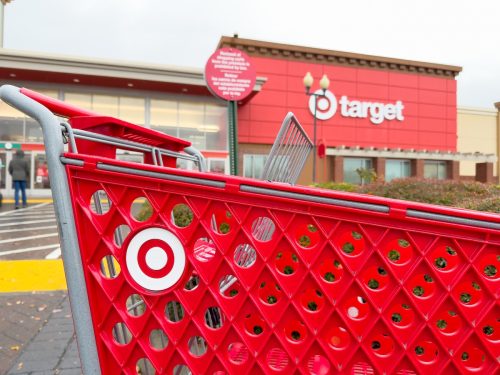
In an Aug. 16 press release, Target announced its earnings for its 2023 fiscal year’s second quarter, which ended on July 29. According to the report, Target’s second quarter comparable sales declined 5.4 percent compared to the same time last year. The company said its comparable store sales dropped by 4.3 percent, while its comparable digital sales fell by 10.5 percent.
The total revenue for this quarter was $24.8 billion, which reflected a “total sales decline of 4.9 percent” for the retailer. In a statement accompanying the press release, Brian Cornell, chair and CEO of Target Corporation, admitted that these results show “softer-than-expected sales” for Target.
RELATED: Shoppers Are Turning Away From Lowe’s and Costco, Data Shows—Here’s Why.
This is the first time sales have fallen in six years.
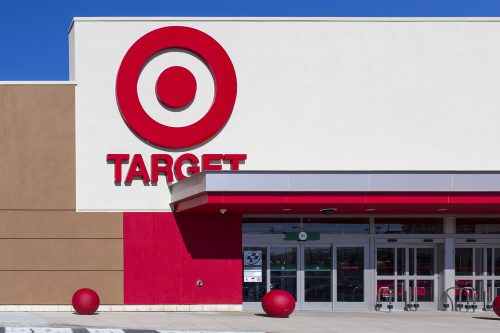
While many retailers have become accustomed to declining sales over the last few years, Target has been seemingly immune. In fact, this is the first time the company has seen a quarterly sales drop in six years, the Associated Press reported. And now, Target isn’t confident that it will see an increase in sales for the rest of the 2023 fiscal year, at least.
“Given recent sales trends, the company lowered its full year sales and profit expectations,” Target stated in its release. “The company now expects comparable sales in a wide range around a mid-single digit decline for the remainder of the year.”
RELATED: Dollar Tree Sells These Same Exact 6 Items for Less Than Walmart and Target.
Shoppers are switching up their spending habits right now.
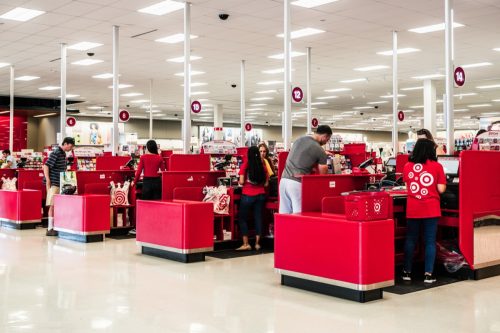
During an Aug. 16 earnings call with analysts, Cornell said that several factors are causing consumers to pull back on discretionary spending at retailers like Target.
“These include the impact of inflation in frequency categories, like food and beverage, and essentials, causing these categories to absorb a much higher portion of consumers’ budgets,” he said.
When it comes to extra funds, consumers are now choosing to spend their money on experiences involving travel and entertainment, instead of on store-bought goods, according to the Target CEO.
“Guests are out at concerts,” Cornell told reporters on a separate Aug. 15 media call, per the AP. “They’re going to movies. They’ve seen Barbie. They’re enjoying those experiential moments, and they’re shopping very carefully for discretionary goods.”
RELATED: For more up-to-date information, sign up for our daily newsletter.
But Target officials said a recent controversy also impacted its sales.
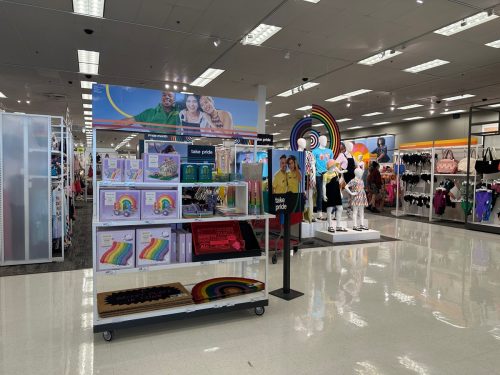
The decrease in discretionary spending was a major contributing factor in the recent sales decline for Target. More than 50 percent of the retailer’s annual sales come from discretionary items, like toys, fashion, and electronic gadgets, the AP reported.
But during the earnings call, Target CFO Michael Fiddelke admitted that the controversy surrounding the company’s Pride collection also played a part in its declining sales for the second quarter.
“Traffic and top-line trends were affected by the reaction to our Pride assortment, which launched in the middle of May,” Fiddelke confirmed.
Cornell told analysts that many of Target’s store team members faced a “negative guest reaction” to its Pride displays this year—despite being something the company has featured for more than a decade. As a result, Target removed some of its Pride products from certain stores to try to combat threats and aggressive actions. But this created even more trouble for the company, as some shoppers then called for a boycott over the removal.
“Specific to pride and heritage months, we’re focused on building assortments that are celebratory and joyous with wide-ranging relevance, being mindful of timing, placement and presentation, leading the segmentation, and leveraging our digital experience, and reconsidering the mix of own brands, national brands, and external partners within these assortments,” Cornell said. “Our goal is to ensure we continue to celebrate moments that are special to our guests, while acknowledging that, every day, for millions of people, they want Target to serve as a refuge in their daily lives.”